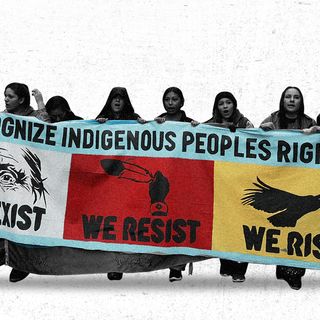In a landmark judgment, Ecuador, sitting in the Andean foothills, became the first country to recognize the legal rights of individual wild animals. This not only marks a remarkable development within the realms of environmental law, but is also the first to extend formal rights towards wild animals.
This is the story of a wild animal monkey named Estrellita. Estrellita was one when she was taken away from the forest illegally; for 18 years thereafter, she was kept as a pet and then taken to a zoo before she died. Her owner, meanwhile, filed a case for the country to recognize Estrellita’s rights, pleading that her removal from hernatural habitat violated her dignity.
“The domestication and humanization of wild animals are phenomena that have a great impact on the maintenance of ecosystems and the balance of nature, as they cause the progressive decline of animal populations,” the court recognized in its ruling.
The verdict builds on a 2008 ruling that set a precedent to recognize nature in itself as a tangible legal entity; which by extension meant that people had a constitutional right to live in a healthy environment. The recent ruling then upholds that even individual animals can exercise this right to live in their natural habitats. The basis cited was such: the animal has a legal right by virtue of its own value, and not the value humans derive from the species.
“The verdict raises animal rights to the level of the constitution, the highest law of Ecuador,” said Ecuadorian environmental lawyer Hugo Echeverría. Some countries (the likes of New Zealand and Canada) have some policies in place offering animals some protection. But arguably, embedding this right within the constitution remains an ideal currently unmatched anywhere else in the world.
Related on The Swaddle:
The World’s First Octopus Farm Raises Ethical Concerns Over Animal Sentience
“Wild species and their individuals have the right not to be hunted, fished, captured, collected, extracted, kept, retained, trafficked, traded or exchanged,” the court also noted. What this means in practice is that animals have a legal right to exist freely within the ecosystems. “This means hunting, fishing, gathering, and forestry are still allowed as long as they’re performed within other pre-existing laws – for example, not in defiance of endangered species acts – and are carried out in ways that limit suffering,” as ScienceAlert noted.
Granting legal protection to the environment is becoming a pertinent conversation within the legal system. In the past, countries like Colombia, New Zealand, Panama, Chile, and Mexico have constitutionally offered legal protection to nature. Nature, the Panama parliament noted, has the right to exist, persist and regenerate its life cycles.” In other words, the Panamagovernment starting 2023 will have to consider how its policies impact the natural ecosystems — the mangroves, the rivers, the beautiful green covers. Because nature exists as “a unique, indivisible and self-regulating community of living beings, elements and ecosystems interrelated to each other that sustains, contains and reproduces all beings.”
The legality offered to animals now must be placed within the context of a worsening climate crisis; experts note we’re currently in the midst of the sixth mass extinction as animals are on the brink of extinction.
“These laws are already proving to be an important legal tool to protect nature, including animals,” Stilt concluded.




